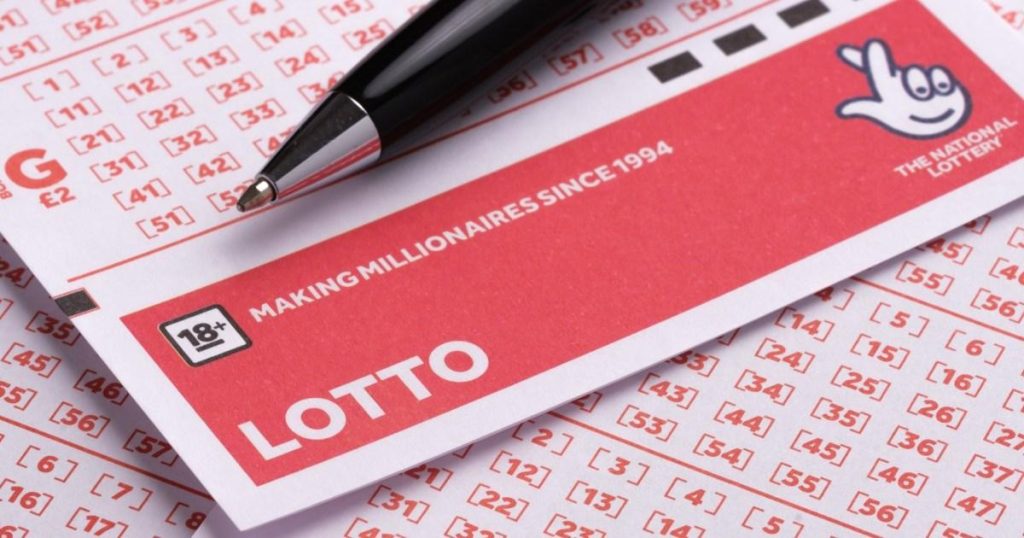Deciphering the Enigma of Lottery Numbers: A Statistical Deep Dive into Luck and Probability
The allure of the National Lottery casts a wide net, captivating millions with the dream of overnight riches. Across the UK, approximately 45 million hopefuls participate each week, their fortunes hinging on a seemingly random selection of numbers. Yet, beneath the surface of chance, patterns emerge, whispered secrets of frequently drawn numbers and combinations that tantalize players with the illusion of predictable luck. Betway’s recent data analysis, spanning a decade of lottery results from October 2015 to January 2025, sheds light on these recurring figures, unveiling the "luckiest" numbers and combinations that have graced winning tickets with surprising regularity.
The analysis reveals a fascinating hierarchy of numerical prominence. Reigning supreme are the numbers 37 and 52, each appearing a remarkable 117 times on winning tickets throughout the analyzed period. These numerical champions are closely trailed by the number 39, which boasts 115 appearances, securing its position as a strong contender in the realm of lottery fortune. Following closely behind is the number 58, etched onto winning tickets a total of 114 times. While these frequent appearances might tempt players to favor these numbers, it’s crucial to remember that each draw remains an independent event, unaffected by past results. The probability of any single number being drawn remains constant, regardless of its historical performance.
Beyond individual numbers, the analysis delves into the realm of combinations, exploring pairs and triplets that appear with unusual frequency. Among pairs, the dynamic duo of 2 and 54 stands out, having graced winning tickets together a notable 20 times. Trailing closely behind are the numbers 37 and 42, appearing as a pair on 19 winning tickets. Moving into the realm of triplets, the combination of 14, 19, and 38 emerges as a frequent victor, appearing six times. Sharing this distinction are the trios of 1, 20, and 24, and 2, 23, and 54, each appearing six times on winning tickets. While these patterns offer intriguing insights, they cannot predict future outcomes. The lottery remains a game of chance, governed by the impartial hand of probability.
The Illusion of Control: Understanding the Randomness of the Lottery
The human mind is inherently wired to seek patterns, to find order amidst chaos. This innate tendency can lead us to perceive significance in seemingly random events, attributing meaning where none exists. The lottery, with its tantalizing blend of chance and potential fortune, provides fertile ground for such interpretations. The repeated appearance of certain numbers or combinations can create the illusion of a predictable system, tempting players to chase these "lucky" figures in hopes of increasing their odds. However, this perception of control is ultimately an illusion. Each lottery draw is an independent event, unaffected by previous results. The probability of any specific number or combination being drawn remains constant, regardless of its past performance.
The allure of "hot" numbers or frequently drawn combinations stems from a cognitive bias known as the availability heuristic. This mental shortcut leads us to overestimate the likelihood of events that are easily recalled, often because they are vivid, dramatic, or recently experienced. In the context of the lottery, the frequent appearance of certain numbers in past draws makes them more readily available in our memory, leading us to perceive them as more likely to occur in the future. This misconception can lead players to invest disproportionately in these "lucky" numbers, even though their true probability of being drawn remains unchanged.
The Mathematics of Chance: Debunking Lottery Myths
The lottery’s allure lies in its inherent unpredictability. Each draw is governed by the laws of probability, a mathematical framework that describes the likelihood of various outcomes in random events. In a typical lottery, a set of numbers is randomly selected from a larger pool. The probability of any specific number being drawn is determined by the size of the pool and the number of selections made. For example, in a lottery where six numbers are drawn from a pool of 59, the probability of any single number being drawn is 6/59, or approximately 10.17%.
This probability remains constant for each draw, regardless of previous results. The notion that certain numbers are "hot" or "due" to be drawn is a fallacy. Each draw is an independent event, unaffected by past outcomes. Similarly, the probability of a specific combination of numbers being drawn is calculated by multiplying the individual probabilities of each number in the combination. While certain combinations might have appeared more frequently in the past, this does not alter their probability of being drawn in future draws.
The Psychology of Lottery Play: Hope, Dreams, and the Illusion of Control
Despite the long odds, millions of people continue to play the lottery each week, driven by a complex interplay of hope, dreams, and the allure of a life-changing windfall. The lottery offers a fleeting escape from the mundane, a chance to imagine a world of financial freedom and unlimited possibilities. For a small stake, players can buy into a dream, however improbable. This emotional investment can be powerful, fueling the desire to play even in the face of overwhelming statistical odds.
The lottery also taps into our innate desire for control. In a world often characterized by uncertainty and unpredictability, the illusion of influencing one’s destiny can be comforting. The selection of "lucky" numbers, the adherence to personal rituals, and the belief in lucky charms all provide a sense of agency, a feeling that we can somehow sway the odds in our favor. This perceived control, however illusory, can enhance the enjoyment of playing, making the experience more engaging and emotionally rewarding.
The Social Dimension of the Lottery: Shared Dreams and Collective Excitement
The lottery is not just an individual pursuit; it also has a strong social dimension. The shared anticipation of the draw, the collective excitement of checking tickets, and the vicarious thrill of witnessing a big win all contribute to the social fabric of the game. The lottery provides a common ground, a shared experience that transcends social and economic boundaries. Water cooler conversations buzz with speculation about potential winners, and the news of a jackpot win can ignite a sense of collective joy, even among those who did not participate.
The lottery also plays a role in supporting good causes. A portion of lottery proceeds often goes towards funding public services, charities, or community projects. This philanthropic dimension adds another layer of meaning to the game, allowing players to feel that their participation contributes to a greater good, even if they don’t personally win a prize. This sense of social responsibility can further enhance the appeal of the lottery, making it more than just a game of chance.
The Responsible Gambler: Balancing Hope with Reality
While the lottery can be a harmless form of entertainment, it’s essential to approach it with a sense of responsibility. Setting a budget and sticking to it is crucial to avoid overspending. It’s important to remember that the lottery is a game of chance, and the odds of winning are slim. Playing responsibly means treating the lottery as a form of entertainment, not as a financial investment or a guaranteed path to riches. The thrill of the game should lie in the anticipation and the shared experience, not in the expectation of winning. By balancing hope with reality, players can enjoy the lottery responsibly, without succumbing to the allure of unrealistic expectations or the potential pitfalls of problem gambling.




